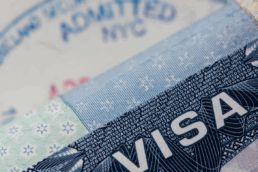In the realm of U.S. immigration law, the H-1B visa stands out as a beacon of opportunity for foreign nationals seeking temporary employment in specialty occupations within the United States. This visa category is instrumental for U.S. employers who are looking to sponsor highly skilled professionals in fields that demand a robust application of specialized knowledge.
Defining “Specialty Occupation”
At the heart of the H-1B visa program is the concept of a “specialty occupation.” This term encompasses a broad range of professions that require the theoretical and practical application of highly specialized knowledge. The fields covered under this definition are diverse, including but not limited to architecture, engineering, mathematics, physical sciences, social sciences, medicine and health, education, business specialties, accounting, law, theology, and the arts.
Meeting the Criteria
For a position to qualify as a specialty occupation, it must meet at least one of the following conditions:
- Degree Requirement: Bachelor’s degree or higher (or the equivalent) is normally the minimum entry requirement for the offered position.
- Industry Standard: The degree requirement is common to the industry in parallel positions among similar organizations, or the job is so complex or unique that it can be performed only by an individual with a degree.
- Employer’s Prerequisite: The employer normally requires a degree or its equivalent for the position.
- Complexity of Duties: The nature of the specific duties is so specialized and complex that the knowledge required to perform the duties is usually associated with the attainment of a bachelor’s or higher degree.
Qualification Through Foreign Degrees and Equivalent Experience
A potential H-1B beneficiary can qualify through both U.S. and foreign degrees. Interestingly, in cases where the foreign national does not hold a degree, the United States Citizenship and Immigration Services (USCIS) is willing to consider a combination of education, training, and professional experience. This alternative pathway requires a professional evaluation to confirm that the individual’s collective credentials are equivalent to a U.S. bachelor’s degree or higher. This aspect of the eligibility criteria underscores the program’s flexibility and recognition of diverse educational and professional backgrounds.
The H-1B visa application process is intricate, reflecting the complexity and specialization of the roles it seeks to fill. For employers and potential candidates alike, understanding the eligibility criteria is the first step in a successful application journey. Whether it’s navigating the requirements for a specialty occupation or assessing the equivalence of foreign degrees and professional experience, every detail matters. Contact Berardi Immigration Law today for more info!
Ready to have Berardi on your side?
Whether you’re a business looking to hire or a professional hoping to relocate, immigration law can be complicated. But you don’t have to do it alone. Put our experience to work for you.



